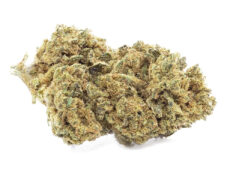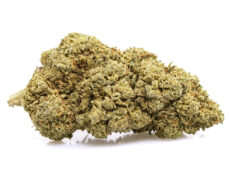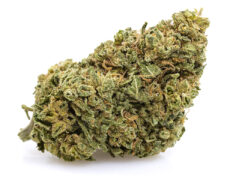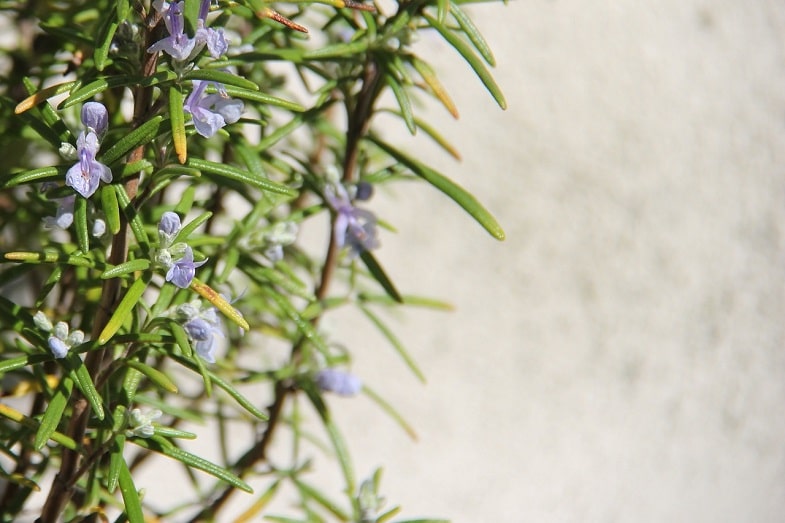Modified on: 21/02/2024
WHAT HAPPENS IF YOU SMOKE FRESH ROSEMARY SPRIGS? HERE’S WHAT YOU NEED TO KNOW.
Off the top of the head, cannabis is the first thing that appears in our minds as soon as we think of the best smokable herbs. This herb is entirely natural and, in addition to its psychoactive effects in its high-THC version, it has relaxing and calming effects in its legal version (CBD weed).
Yet, as much as marijuana is probably the most appreciated, known, discussed, and studied herb on the market. However, not only are there many other herbs, which are mainly used in cuisine, but also, they can be possibly smoked.
-
 SMALL & BIG
SMALL & BIGBUBBLEGUM
Indoor | CBD – CBDA < 22%
Starting from:EASTER SALE -10%
1,25CHF1,10CHF/gGrams3 5 10 20 50 100 -



DO SI DOS
Starting from: 2,00CHF/gIndoor | CBD – CBDA < 19%
Grams3 5 10 20 50 100 -



ROYAL GG#4
Starting from: 2,30CHF/gIndoor | CBD – CBDA < 40%
Grams3 5 10 20 50 100 -



GORILLA GLUE
Starting from: 2,90CHF/gIndoor | CBD – CBDA < 20%
Grams3 5 10 20 50 100
One of these is rosemary, a plant known for its distinctive citrus-y aroma and flavor. It is one of the most beloved and widely used aromatic herbs worldwide.
However, recently, smoked rosemary has been paid a lot of attention to, as a possible provider of the same benefits of cannabis.
In this article, we will examine in detail what happens when you smoke this plant, health benefits of smoking rosemary, its possible side effects, the safety of herbal smoking blends, and how to do it responsibly.
Smoking Herbs: journey between history and contemporary times
Since ancient times smoking blends has experienced a resurgence in recent years in many different forms. Starting from spiritual practices and therapeutic use to a modern relaxation tendency, herbs (like as chamomile, damiana, lavender, sage) have a special place in culture and well-being.
Smoking any herb is always a double-edged sword. Recent studies suggest that it is neither discouraged nor recommended because the combustion generated on the smoked herb releases oxidative substances at the pulmonary level. Therefore, it is advisable to consult a health care professional in order to discover its potential benefits.
Traditional and Spiritual Uses
In many indigenous cultures, smoking blends, and fresh herbs (including mint, oregano, sage, lavender, damiana, chamomile) starts in ancient times during ritual ceremonies and it has a completely different meaning from smoking tobacco. For example, Native American tribes have used its smoke during spiritual communication ceremonies. The practice of smoking rapé is widespread among some Amazon tribes as part of their spiritual and healing traditions.
Read also: CBD oil: positive and negative effects on the body


Contemporary times
Recently, the use of smokable herbs has changed radically. Some people choose to smoke certain aromatic herbs for their unique smells and flavors in order to experience relaxation and meditation.
Herbal smoking: risks and considerations
It is important to note that smoking in general is not a good practice for the body and it can pose several threats to health, including lung damage and addiction.
Before exploring smokable herbs such as chamomile, it is important to fully understand their effects and consider safer alternatives, such as vaporizer inhalation or oral consumption.
Clove buds: a plant to smoke?
This herb is not commonly smoked for recreational or therapeutic purposes like some other substances, such as tobacco or cannabis. Smoking this plant may pose risks to health and is not a recommended practice, especially if you are a pregnant woman.
This plant is mainly used in cooking as an aromatic spice to flavor dishes or in traditional medicine for its anti-inflammatory and analgesic benefits. Smoking this spice could cause irritation to the respiratory tract, lungs and offer no known benefits.
In case you desire to take advantage of the properties of this herb, we suggest you do it responsibly: try using clove essential oil for aromatherapy or toothaches.
In general, it is important to pay attention to how herbs and spices are used and consult a health expert if you have doubts about their safety and application.
Read also: What Are Terpenes?
Rosemary (Rosmarinus officinalis): overview
Rosemary is an aromatic culinary herb native to Mediterranean regions. It is known for its pungent aroma and robust flavor, making it an essential ingredient in many main dish and cocktail recipes. Traditionally, it has been used as a spice (as its flavor distinguishes for notes of pepper, lemon).
Nowadays, due to its medical benefits many people start drinking rosemary tea in order to get rid of menstrual cramps, digestive problems or colds. An alternative use consists simply in adding it to herbal smoking blends. Furthermore, it is known for its antioxidant properties and for enhancing memory.
Rosemary is also a great base for herbal blends, or drink recipes, either the simple ones such as tea, possibly with sugar, or more sophisticated ones like cocktails!
Finally, try adding rosemary to your smoking blend!
However, recently, this spectacular source of iron and antioxidants has gained increasing interest for its potential psychoactive properties when smoked. Indeed, it is believed that smoking rosemary leaves, or dried rosemary herbs can get you the high feeling.
Moreover, not only has this herb been considered a fragrant and aromatic spice to season meat with, but also a spice known for its anti inflammatory properties.
However, please bear in mind that rosemary, if taken in high doses, can result in vomiting, spasms and presence of fluid in the lungs.
Is smoking rosemary safe?
Before examining the effects of smoking this herb on the body and mind, it is important to consider the safety of this practice. Smoking takes several risks, regardless of what you smoke.
If you are looking for a product to help you relieve stress and unwind, we recommend CBD oil instead of hashish, simply for the sake of mode and well-being for your body.
Potential risks of smoking rosemary
Like all plants that can be smoked, from tobacco to illegal herbs to light hemp, mint, sage, or chamomile, there are always side effects to consider when exploring alternatives to their main use, and some are more common than others, such as respiratory tract irritation; indeed, smoke can irritate the respiratory tract, causing coughing and discomfort.
In the case of this herb, whose primary use is certainly not smoking, there are also unknown effects, as unlike some widely studied psychoactive substances like cannabis, there is little data on the safety and effects of smoking rosemary. This means that long-term effects may be unknown.
Moreover, smoked rosemary can pose a threat to health as this type of spice may contain contaminants such as pesticides or heavy metals, which could become harmful if inhaled.
In general, smoking this herb may not be a safe practice and may cause health problems. Before considering this practice or any other form of alternative consumption, it is crucial to consult a medical specialist to assess the specific effects related to your personal situation.


Benefits of smoking rosemary
Is smoking rosemary bad to the extent that no potential benefits can be verified? Well, the effects of smoking rosemary are not scientifically confirmed. However, some users claim that rosemary has many advantages: it can enhance memory and it is believed to improve blood circulation and to reduce stress.
- Relaxation Effect: Some people claim to experience a sense of relaxation after smoking this herb. This effect could be attributed to the presence of aromatic compounds like rosemary, which could have calming properties.
- Unique Aroma and Taste: Smoke can offer a unique sensory experience due to its characteristic aroma and flavor. This can be intriguing for herb enthusiasts.
- Personal Exploration: For some, exploring new alternatives to consume plants and substances can be a personal exploration experience and an opportunity for discovery.
How to smoke rosemary responsibly
If, despite undesirable effects, you still decide to try smoking it, it is essential to do so responsibly to minimize potential harm. In any case, it is possible to smoke it in the same way as tobacco, and combustion occurs in the same way. You just need rolling papers, a grinder to chop the fresh rosemary leaves. Here are some tips:
- Quality Choice: Ensure you use only high-quality rosemary, preferably organic, to avoid harmful contaminants and toxic chemicals.
- Moderation: Smoke it in moderation and don’t overdo it. It is essential to listen to your body and its reactions. Try to have fun exploring herbal smoking but be aware of the consequences!
- Safe Environments: Smoke in a safe and well-ventilated environment to reduce exposure to smoke.
- Research: Before smoking rosemary leaves and any herbal smoking blends, research reliable information from authoritative sources and consider consulting a healthcare professional.
- Safe Alternatives: If you are interested in relaxing effects, consider safe and well-studied alternatives, such as herbal teas or meditation.
Conclusions
In conclusion, regardless of the type of combustion, smoking rosemary is an emerging practice that carries potential health risks. While some people may report positive effects, it is essential to note that effects can vary significantly, and the safety of herbal smoking has not been definitively established.
At Justbob, we recommend trying the alternatives available on the market.
In case this article encouraged you to smoke rosemary, we suggest you consult a medical specialist. Your health and well-being should always be the top priority.
In any case, if you want to relax and are unsure which product might be right for you, we recommend playing it safe and choosing legal cannabis-based derivatives that will suit your tastes. If you wish, look at our online store where you will find many CBD products, from CBD oil to CBD hash.







